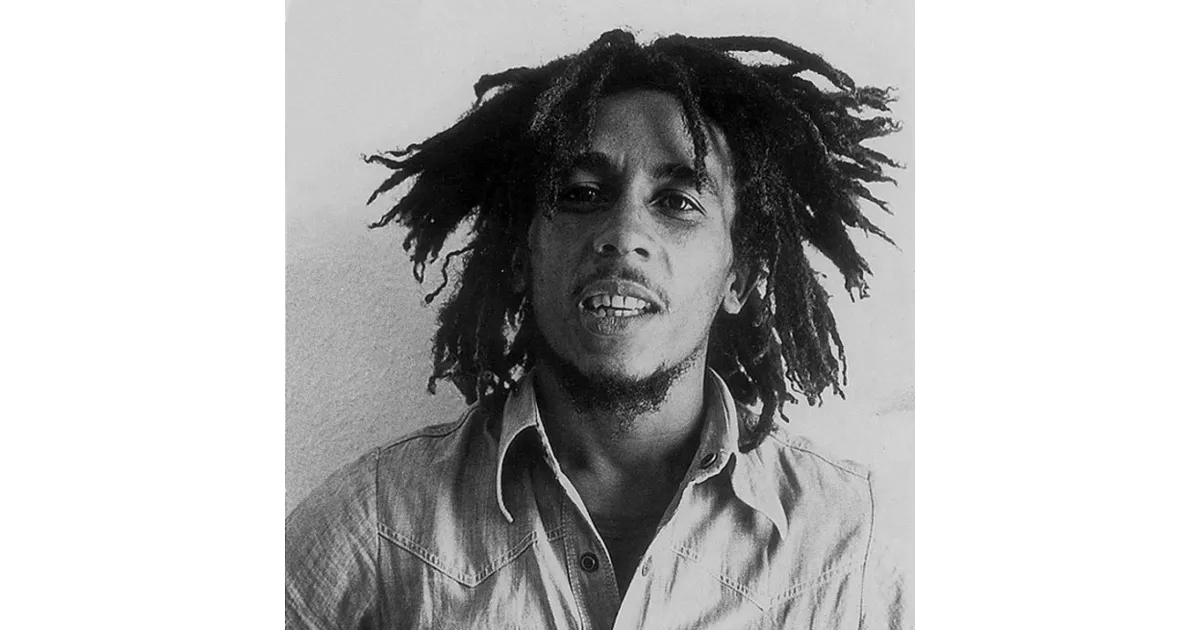How Bob Marley built a successful career. Explore key moments that defined the journey.
Bob Marley was a highly influential Jamaican singer-songwriter and guitarist, pivotal in popularizing reggae music globally. His unique blend of reggae, ska, and rocksteady, coupled with his distinctive vocal style, garnered him international acclaim. Beyond music, Marley became a symbol of Jamaican identity and Rastafarian spirituality, weaving themes of social justice, Pan-Africanism, and cannabis legalization into his work. His outspoken advocacy for democratic reforms and cultural pride made him both revered and controversial, solidifying his legacy as a cultural icon and influential voice for marginalized communities.
1937: Marcus Garvey's speech
In 1937, Marcus Garvey gave a speech in Nova Scotia, which later influenced Bob Marley's "Redemption Song."
February 1962: First Recordings
In February 1962, Bob Marley recorded four songs including "One Cup of Coffee" which was released under the pseudonym Bobby Martell, for local music producer Leslie Kong.
1963: Formation of The Teenagers
In 1963, Bob Marley began his career by forming the group Teenagers with Peter Tosh and Bunny Wailer, later known as the Wailers.
February 1964: "Simmer Down" Reached Jamaican No. 1
In February 1964, The Wailers' single "Simmer Down" reached the No. 1 spot in Jamaica, selling an estimated 70,000 copies.
1965: Release of Debut Album
In 1965, The Wailers released their debut studio album, 'The Wailing Wailers,' which included the popular single 'One Love,' establishing them as a rising reggae group.
1966: Departure of Members from The Wailers
By 1966, Braithwaite, Kelso, and Smith had left the Wailers, leaving the core trio of Bob Marley, Bunny Wailer, and Peter Tosh.
1968: Recutting Old Tracks
Between 1968 and 1972, Bob and Rita Marley, Peter Tosh and Bunny Wailer re-cut some old tracks with JAD Records in Kingston and London in an attempt to commercialise the Wailers' sound.
1969: Shift to Reggae Sound
In 1969, Bob Marley approached producer Leslie Kong and began incorporating a slower, reggae beat into his music with the Wailers.
1971: Release of 'The Best of The Wailers'
In 1971, The Wailers released the album 'The Best of The Wailers', marking their musical shift after Marley relocated to London.
1972: Signing with CBS Records and Meeting Chris Blackwell
In 1972, Bob Marley signed with CBS Records in London, toured with Johnny Nash, and met Chris Blackwell of Island Records, leading to a record deal.
April 1973: Release of 'Catch a Fire'
In April 1973, The Wailers' first album for Island, 'Catch a Fire,' was released worldwide, receiving positive reviews.
1973: International Attention
In 1973, Bob Marley and the Wailers began to gain international attention after signing to Island and touring in support of the albums Catch a Fire and Burnin.
September 1974: Eric Clapton's "I Shot the Sheriff" Reaches No. 1
On September 14, 1974, Eric Clapton's cover of Bob Marley's "I Shot the Sheriff" reached number 1 on the Billboard Hot 100.
1974: Disbandment of The Wailers
In 1974, The Wailers disbanded, with each of the three main members pursuing a solo career.
1974: Solo Career
In 1974, following the disbandment of The Wailers, Bob Marley carried on under the band's name and released the album Natty Dread, which received positive reviews.
1975: International Breakthrough
In 1975, Bob Marley had his international breakthrough with his first hit outside Jamaica with a live version of "No Woman, No Cry", from the Live! album.
1976: US Breakthrough and Assassination Attempt
In 1976, Bob Marley achieved his breakthrough album in the United States, Rastaman Vibration, and survived an assassination attempt at his home in Jamaica.
1976: US Breakthrough
In 1976, Bob Marley had his breakthrough album in the United States, Rastaman Vibration, which reached the Top 50 of the Billboard Soul Charts.
1976: Release of "War"
In 1976, Bob Marley released his song "War", which showed his strong opposition to South African apartheid.
June 1977: Rainbow Theatre Concerts
From June 1-4, 1977, Bob Marley played with the Wailers at the Rainbow Theatre in London, with highlights recorded in the BBC documentary Bob Marley: Live at the Rainbow 1977.
1978: Release of "Babylon by Bus"
In 1978, Bob Marley and the Wailers released "Babylon by Bus", a double live album featuring 13 tracks, which received critical acclaim and captured the intensity of Marley's live performances.
1978: Return to Jamaica and One Love Peace Concert
In 1978, Bob Marley returned to Jamaica and performed at the One Love Peace Concert, uniting political rivals Michael Manley and Edward Seaga on stage.
July 1979: Appearance at the Amandla Festival
In July 1979, Bob Marley appeared at the Amandla Festival in Boston, demonstrating his opposition to South African apartheid.
May 1980: Release of Uprising album
In May 1980, the album Uprising was released by Bob Marley and the Wailers.
July 1980: Last outdoor concert in Dublin
On 6 July 1980, Bob Marley played his last ever outdoor concert at Dalymount Park in Dublin.
1980: Scheduling a world tour
Despite his illness, in 1980, Bob Marley was in the process of scheduling a world tour.
1980: Release of Uprising
In 1980, Uprising was released. It was Bob Marley's final studio album and included "Redemption Song" and "Forever Loving Jah".
1980: Performance at Zimbabwe's Independence Day Celebration
In early 1980, Bob Marley was invited to perform at the 17 April celebration of Zimbabwe's Independence Day.
1983: Posthumous Release of Confrontation
In 1983, Confrontation was released posthumously, containing unreleased material recorded during Bob Marley's lifetime.
Mentioned in this timeline
CBS Broadcasting Inc CBS is a prominent American commercial broadcast...

The Billboard Hot is the primary music chart in the...
Nova Scotia is a province in the Maritimes region of...

Football is a family of team sports primarily involving kicking...

The Rock and Roll Hall of Fame located in Cleveland...
Jamaica is an island country located in the Caribbean south...
Trending

The Miracle on Ice was an unexpected victory by the United States men's ice hockey team over the heavily favored...
8 months ago Chiefs Dominate 2025 NFL Schedule with Seven Prime-Time Games

Mandel Mandy Bruce Patinkin is a versatile American actor and singer recognized for his work in musical theatre television and...

8 months ago Trump's White House Rose Garden Paving Sparks Controversy After Melania's Redesign; Bulldozing Begins.
2 months ago Hall High School in West Hartford went into secure mode; no weapon found.

3 months ago Upstart's Q3 Earnings: Mixed Results, Soft Q4 Guidance, and Stock Slides After Announcement.
Popular

Thomas Douglas Homan is an American law enforcement officer who...

XXXTentacion born Jahseh Dwayne Ricardo Onfroy was a controversial yet...

William Franklin Graham III commonly known as Franklin Graham is...

Jupiter is the fifth and largest planet from the Sun...

Instagram is a photo and video-sharing social networking service owned...

KFC or Kentucky Fried Chicken is an American fast-food chain...
